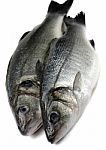I'm not the fig plucker,
I’m the fig plucker’s son,
But I'll pluck your figs
Till the fig plucker comes.
That’s a little ditty my father taught to me. Yes, my father! I didn’t know he knew about possibly lewd things like this. I know my parents did somehow accidentally discover sexual intercourse, but it was just the one time, as I am an only child.
 I had been telling him of the innocent, clean tongue-twisters I’d been teaching my young cousins. Ones like Peter Piper, or she sells seashells. And he popped up with that one. Still, it’s served me well.
I had been telling him of the innocent, clean tongue-twisters I’d been teaching my young cousins. Ones like Peter Piper, or she sells seashells. And he popped up with that one. Still, it’s served me well.Tongue-twisters are phrases that are purposely constructed to be hard to articulate. They have two or more sequences of sounds, often using alliteration, that require readjusting the tongue, and then those two sounds are repeated in different sequences. The aforementioned she sells seashells switches between an s and an sh sound. As rapidly as possible.
The hardest tongue-twister in English, according to Guinness World Records, is “The sixth sick sheikh’s sixth sheep’s sick.” That is a mouthful, but then so is this one: “The seething sea ceaseth and thus the seething sea sufficeth us”. All the more harder for us to pronounce because of the stilted language. That one was from William Poundstone.
The slip of the tongue when speaking these tricky sentences results in spoonerisms, words or phrases where letters or syllables get swapped. Thus “slips of the tongue” becomes “tips of the slung”.
Tongue-twisters are often used to teach students learning a language. The careful annunciation is good for language learners and helps them to pronounce words better. Imagine walking into an ESL class and hearing en masse:
How much wood would a woodchuck chuck
If a woodchuck could chuck wood?
He would chuck, he would, as much as he could,
And chuck as much as a woodchuck would
If a woodchuck could chuck wood.
Every language seems to have tongue-twisters, attesting to their popularity. Here are some to try:
German:
"Fischers Fritz fischt frische Fische. Frische Fische fischt Fischers Fritz"
(Fisherman Fritz fishes fresh fish, fresh fish are fished by fisherman Fritz).
“In Ulm, und um Ulm, und um Ulm herum.“
(In Ulm and about Ulm and about all around Ulm.)
“Wer Kent kennt, kennt Kent. Wer Kent nicht kennt, kennt Kent nicht.”
Whoever knows Kent, knows Kent. Who doesn't know Kent, doesn't know Kent.
French:
(Aunty, the apple tart tempts Uncle; Uncle has touched the apple tart, Aunty.)
“Saucisses sèches sachant sécher sans s‘assécher.”
A sausage knowing how to dry must know how to dry without drying out!
“Si mon tonton tond ton tonton, ton tonton sera tondu.”
If my uncle shaves your uncle, your uncle will be shaved.
Spanish:
“Tres tristes tigres tragan trigo en un trigal.”
Three sad tigers swallow wheat in a wheat field.
“Como quieres que te quiera si al que quiero no me quiere como quiero que me quiera.”
How do you want for me to love you when the one I love doesn't love me like I want him to love me.
Some tongue-twisters are short words or phrases which become difficult when repeated quickly multiple times. The classic English ones are toy boat and rubber baby buggy bumper. Others are:
Irish wristwatch
unique New York
freshly fried flying fish
the epitome of femininity
Many an anemone sees an enemy anemone
Greek grapes
Imagine an imaginary menagerie manager imagining managing an imaginary menagerie.
A skunk sat on a stump and thunk the stump stunk, but the stump thunk the skunk stunk.
And now, the ones you’ve all been waiting for…the ones you have to say VERY CAREFULLY…
I slit the sheet, the sheet I slit;
and on the slitted sheet I sit.
Mrs. Puggy Wuggy has a square cut punt.
Not a punt cut square,
Just a square cut punt.
It's round in the stern and blunt in the front.
Mrs Puggy Wuggy has a square cut punt.
Try not to share these with any English language learners, please!
*******************************





I'm pretty good with tongue-twisters, but I only say them in private. ;-)
ReplyDelete